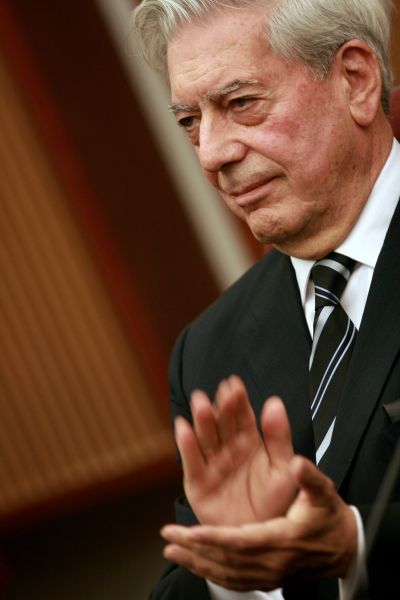Vargas Llosa completes new Belgian Congo novel

Peruvian novelist Mario Vargas Llosa said his latest novel was inspired by the Irish nationalist Roger Casement, who denounced rights abuses in early 20th century Congo and was hanged on charges of treason by the British.
Speaking to AFP in his Madrid home, the prolific 73-year-old author of "Aunt Julia and the Scriptwriter" and "Death in the Andes" explained he was "fascinated by the varied and adventurous life" of the British diplomat, whom he discovered reading a biography of Joseph Conrad.
Casement, who also defended the rights of Amazonian Indians, achieved international renown in 1904 when he published a first-hand report exposing human rights abuses in the Congo under Belgian King Leopold II.
The report is credited with leading Belgium to overhaul its administration of the African territory.
Vargas Llosa visited the Democratic Republic of Congo last year and went to Northern Ireland to "familiarise myself with the surroundings, scenery and societies" that he would describe "freely" in his book.
"Casement was one of the first to see and document the cruelties of this colonisation: he was ahead of his time. The novel is inspired by historical facts," explained Vargas Llosa, who splits his time between Peru and Spain.
Casement went on to support the Irish independence movement, but during World War I he was arrested on charges of treason and hanged by the British in 1916.
His latest book, which took him two years to write and is tentatively entitled "El sueno del celta" ("The Celtic Dream"), is to be published in 2010 or 2011.
Vargas Llosa, a prolific essayist and playwright who is often tipped to win the Nobel Prize for Literature, continues to write for Spain's main centre-left daily, El Pais. He will spend four months lecturing at Princeton University in the United States at the start of 2010.
"One must always have projects lined up, feed one's curiosity, stay alive" said Vargas Llosa, who has just finished an essay on the Uruguayan writer Juan Carlos Onetti.
"A writer must never turn into a statue" he said. "I have never liked the idea of a writer stuck in his library, cut off from the world, like Proust was. I need to keep a foothold in reality, know what's going on. That's why I do journalism".
From 1959 to 1960 Vargas Llosa worked on the Spanish desk in Paris of Agence France-Presse before writing the novel that made him famous, "The Time of the Hero", set in a Lima military school.
He ran as Peru's centre-right candidate in the country's 1990 presidential elections, although in his youth he had been engaged in left-wing politics.
A writer "has a moral obligation to take part in civil life, if not politics too," he said.
Over his long and peripatetic career Vargas Llosa has rarely put down his pen, mixing "discipline" and "curiosity", the two qualities he says are indispensable for a writer.
"I'm very lucky," he smiled, recognising that he has "the incredible opportunity to dedicate the majority of my time to the two things I love the most: reading and writing".
Subscribe to Independent Premium to bookmark this article
Want to bookmark your favourite articles and stories to read or reference later? Start your Independent Premium subscription today.

Join our commenting forum
Join thought-provoking conversations, follow other Independent readers and see their replies